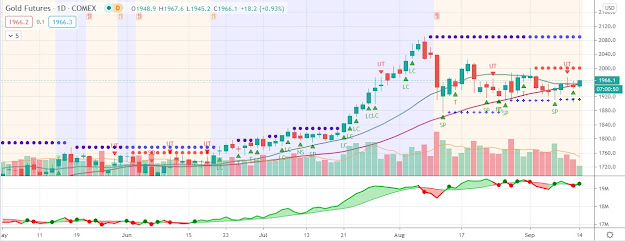Many central banks around the world continued to add to their gold holdings
Many central banks around the world continued to add to their gold
holdings in recent months, according to data from the International
Monetary Fund (IMF).
The largest increase was by the Philippines, which raised its gold holdings by 1.03 million ounces to 6.245 million in March. This represented the biggest reported increase in a nation’s gold reserves since Mexico purchased 2.5 million ounces in March of 2011. Furthermore, it marked the seventh consecutive month in which The Philippines added to its gold reserves.
Mexico was the second largest buyer of gold in April, as it purchased 94,000 ounces to bring its total to 4.04 million. Other substantial purchases were made by Turkey, Kazakhstan, Ukraine, and Sri Lanka.
Notably, the countries that have added the most to their gold reserves in recent years have relatively small economies and have not engaged in unprecedented quantitative easing measures. This suggests that these nations are seeking to protect themselves from the rampant currency debasement being implemented by the likes of the Federal Reserve, European Central Bank (ECB), Bank of England, and Bank of Japan.
The IMF data should “gather much attention from market participants…[and] should somewhat help sentiment for gold,” according to UBS precious metals analyst Edel Tully.
Last year, central banks added 456.4 tons of gold – the largest amount in nearly 50 years – and are expected to buy as much as 400 tons in 2012, according to the World Gold Council.
The largest increase was by the Philippines, which raised its gold holdings by 1.03 million ounces to 6.245 million in March. This represented the biggest reported increase in a nation’s gold reserves since Mexico purchased 2.5 million ounces in March of 2011. Furthermore, it marked the seventh consecutive month in which The Philippines added to its gold reserves.
Mexico was the second largest buyer of gold in April, as it purchased 94,000 ounces to bring its total to 4.04 million. Other substantial purchases were made by Turkey, Kazakhstan, Ukraine, and Sri Lanka.
Notably, the countries that have added the most to their gold reserves in recent years have relatively small economies and have not engaged in unprecedented quantitative easing measures. This suggests that these nations are seeking to protect themselves from the rampant currency debasement being implemented by the likes of the Federal Reserve, European Central Bank (ECB), Bank of England, and Bank of Japan.
The IMF data should “gather much attention from market participants…[and] should somewhat help sentiment for gold,” according to UBS precious metals analyst Edel Tully.
Last year, central banks added 456.4 tons of gold – the largest amount in nearly 50 years – and are expected to buy as much as 400 tons in 2012, according to the World Gold Council.




Comments
Post a Comment